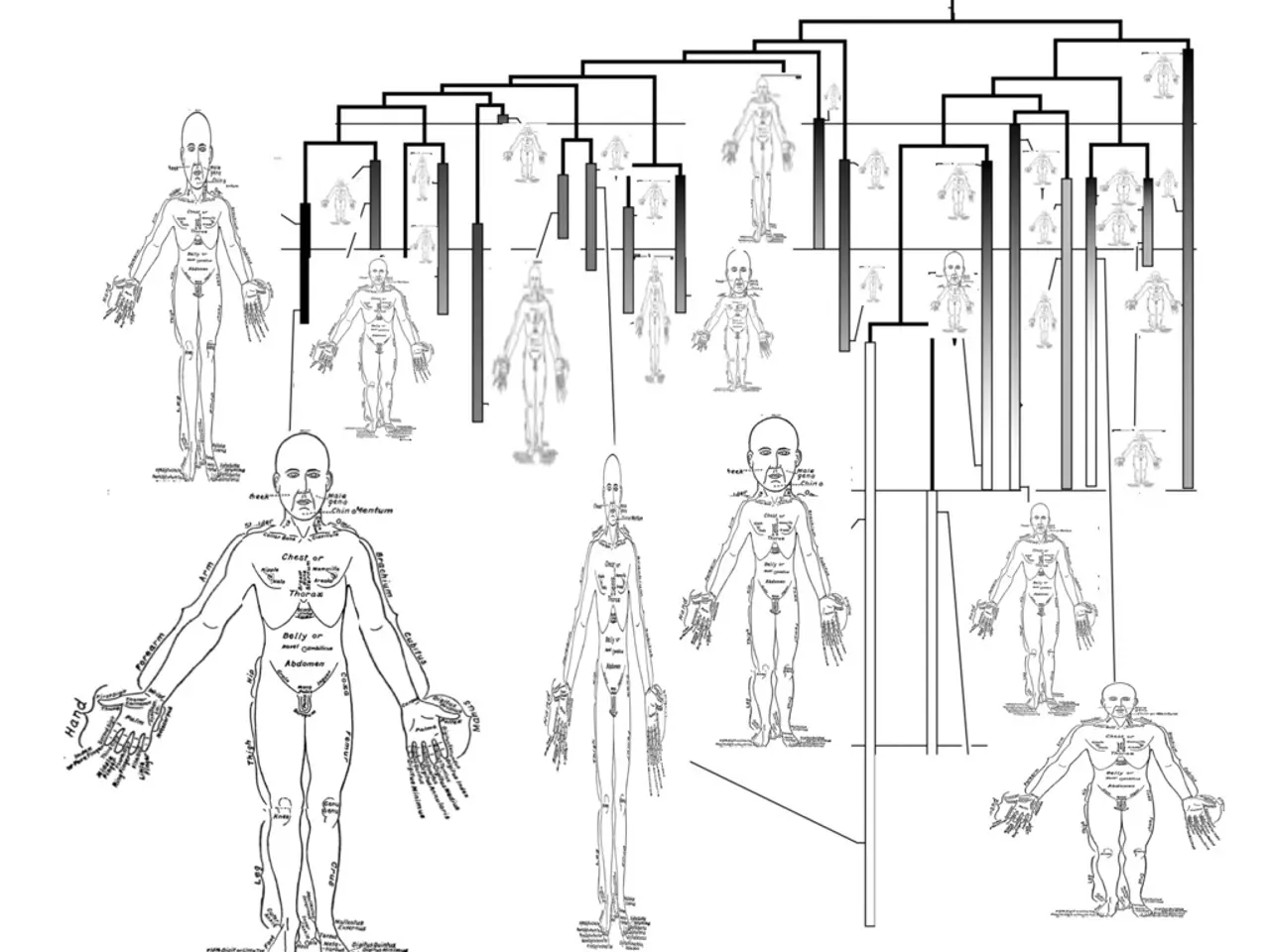Autonomic Nervous System (ANS): Insights into Its Functionality and Mechanisms
The parasympathetic nervous system (PNS), often referred to as the "rest and digest" system, plays a crucial role in maintaining homeostasis, or a stable internal environment, by promoting bodily functions that conserve energy and restore the body to a calm, balanced state after stress or activity.
### Role in Homeostasis
The PNS helps balance the autonomic nervous system (ANS) by counteracting the effects of the sympathetic nervous system (SNS), which prepares the body for fight-or-flight responses. This balance is essential for maintaining a stable internal environment. The PNS regulates key involuntary functions such as heart rate, blood pressure, digestion, respiratory rate, and pupillary response, ensuring these systems function optimally during restful states.
By reducing heart rate, lowering blood pressure, and promoting digestion, the PNS conserves energy and promotes physical and mental well-being.
### Examples of PNS Functions
The PNS is responsible for various functions, including slowing heart rate, stimulating digestion, constricting pupils, contracting the bladder, slowing breathing rate, facilitating restorative sleep, and lowering stress levels.
### The Sympathetic and Parasympathetic Systems: A Balancing Act
The complementary function between the SNS and PNS ensures the body can respond appropriately to environmental demands and then return to a balanced, energy-efficient state.
### Potential Issues with the PNS and ANS
As we age, the autonomic nervous system may become less responsive, making older adults more vulnerable to fainting, temperature extremes, and stress-related health issues. Additionally, dysfunction in the ANS can occur due to aging, disease, or injury, with symptoms ranging from fainting and abnormal heart rate to digestive problems.
The ANS responds to emotional states like fear and happiness, as shown in research. Chronic stress, anxiety, and trauma can disrupt normal autonomic regulation by overactivating the SNS. The polyvagal theory suggests the vagus nerve plays a central role in emotional regulation, safety perception, and social behavior.
### The Enteric Nervous System: The ANS's Gut-Based Branch
The enteric division of the autonomic nervous system can function independently without being stimulated by the central nervous system. This division is responsible for controlling the motor functions and secreting enzymes within the gastrointestinal tract. Emotional states like anxiety and trauma can dysregulate the ANS, sometimes leading to chronic health or psychological issues.
### Communication within the ANS
The ANS maintains homeostasis by balancing responses to stress and recovery through its different branches. It works by receiving information from either external stimuli or the body and uses neurotransmitters like acetylcholine, epinephrine, and norepinephrine for communication within the system.
In conclusion, the parasympathetic nervous system maintains homeostasis by slowing down the heart, stimulating digestion, conserving energy, and promoting recovery after stress, playing a vital role in overall health and well-being. Understanding the PNS and its role in the ANS can help individuals make informed decisions about their health and lifestyle choices.
- Adulthood often brings potential issues with the autonomic nervous system (ANS), making older adults more susceptible to health conditions like fainting, temperature extremes, and stress-related ailments.
- The parasympathetic nervous system (PNS) plays a crucial role in maintaining homeostasis, specifically by slowing the heart to conserve energy and promote physical and mental well-being.
- In psychology, research has shown that the autonomic nervous system (ANS) responds to emotional states like fear and happiness, with chronic stress, anxiety, and trauma disrupting normal autonomic regulation.
- The PNS, often known as the "rest and digest" system, is responsible for functions such as slowing heart rate, stimulating digestion, and promoting restorative sleep, leading to better memory and cognitive function.
- Disorders affecting the PNS, such as depression and anxiety, can impact an individual's overall health and well-being, causing impairments in social behavior and perception.
- The brain and nervous system are intricately connected, with the PNS controlling key involuntary functions like heart rate, blood pressure, and digestion, while the mind manages thoughts and emotions.
- Emotions like anxiety and trauma can dysregulate the autonomic nervous system (ANS), leading to chronic health or psychological issues, especially in the gastrointestinal tract.
- The enteric division of the autonomic nervous system (ANS) is responsible for controlling the motor functions and secreting enzymes within the gastrointestinal tract, functioning independently of the central nervous system.
- The complementary function between the sympathetic nervous system (SNS) and PNS ensures efficient stress responses, recovering, and a balanced state that supports health-and-wellness and averts medical-conditions.
- Understanding the roles of the PNS and the ANS in science can help individuals develop healthy habits, manage stress, and promote health and wellness in adulthood.




